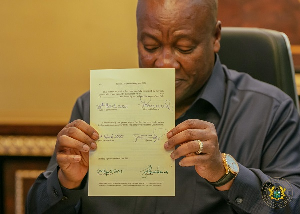The Rent Control Department has called on Parliament to urgently give effect to the Rent Bill currently before it to help curb the perennial landlord/tenant impasse.
According to the department, the Rent Act, which came into existence in 1963, has outlived its usefulness and thereby created avenues for property owners to exploit its loopholes.
The Bono Regional Rent Control Manager, Ebenezer Awusi-Wilson, who made the call in an interview with the Ghanaian Times in Sunyani, indicated that the bill, when promulgated into law, would deal with all the loopholes that are being exploited.
He revealed that for the past seven months, his outfit had received about 100 cases, which are being addressed by the department.
The cases, he said, included landlords inducing tenants to quit, nuisance on the part of tenants ad refund of rent advance balance.
The Ghanaian Times agrees with the department that the Rent Act, 1963 (Act 220) be reviewed by the Law Reform Commission.
It is evident that contrary to the Act, some landlords in the country are demanding advanced rent payments from two to five years before they sign agreements with prospective tenants.
Clearly, the actions of these landlords are against the Rent Act, which expressly forbids landlords from demanding rent advances in excess of six months.
The high cost of rent for low income workers/individuals in major cities in the country has become a source of worry to society.
There have been instances where tenants have been forcibly evicted by landlords because they (tenants) could not mobilise the increased rent advances demanded by landlords.
Some landlords/landladies have ejected tenants without recourse to the law, which requires that tenants are given three months’ notice.
The paper thinks that the Act, which prohibits house owners from increasing rent without the notice of the department, is being flouted because there are no punitive sanctions against offenders.
The Rent Act was adopted to regulate landlords and tenants relationship and also ensure a more systematic and government-controlled housing system in the country.
Unfortunately, tenants can no longer depend on the Act, which was primarily promulgated to protect them.
The paper believes that enforcement should be a key issue in reviewing the Rent Act.
It is understood that the Rent Bill proposes to abolish the current six-month rent advance limit and replace it with a 12-month ceiling.
That should be refreshing news to landlords to make enough earnings on their investment. Of course, there are landlords who deserve commendation for collecting monthly rent from tenants without demanding rent advances.
The Ghanaian Times urges Parliament to expedite action on the passage of the Rent bill into law while the government resources the department to function efficiently.
This would make it illegal for landlords to demand rent advance for more than one year.
Besides, there should be stiffer punishment for those who flout the law to serve as deterrent to others.
For decades, landlords have exploited tenants by charging arbitrary rent much to their discomfort and the time to act is now, to pass the Rent bill into law.
Editorial News of Monday, 15 March 2021
Source: ghanaiantimes.com.gh
Ghanaian Times: Rent bill must be passed into law
Entertainment












